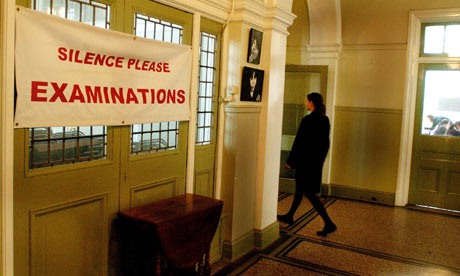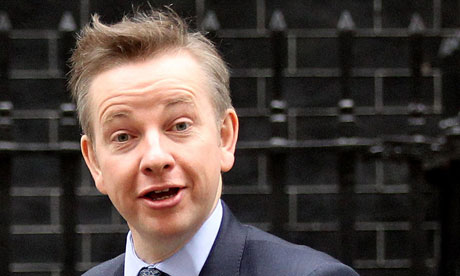There's no room for error now schools are businesses. We need to hire more teachers and give them space to try new ideas

Teachers have been 'gaming' the system to get their pupils through exams. Photograph: Rui Vieira/PA
According to a poll by the Association of Teachers and Lecturers, 35% of teachers say they could be "tempted to cheat". I've been a teacher for 10 years, and those figures hardly surprise me. I've seen everything from teachers openly rubbishing other subjects to ensure revision session attendance, teachers advising pupils to retake a whole year to improve performance in one module (thus ensuring their results don't drop), all the way to teachers encouraging pupils to annotate texts in the form of a shorthand lesson plan. I've seen teachers using exam spec answers and teachers becoming examiners for a year to steal good practice: in other words, we all work the system. What really worries me, however, is that there is no grey area left untapped and staff will feel pressured to go that extra inch into full-blown plagiarism.
Of course, gaming the system to relieve pressure from senior management is as old as the hills. But to get your head around around the whole truth of the ugly situation means unpicking a much larger problem with education in the UK.
Let me burst some bubbles, to start with: schools are businesses. All employees at the schools I have worked at are held accountable for their results. Residuals (how well your students have improved on predicted grades) A*-C pass rates, Alps scores, t-Scores, value-added – all are unpicked by a good management team, in a bid to improve the business. Better pass rates equals a more attractive school, and therefore more students. More students means more money. We are businesses.
The switch to academy status is to most parents confusing and pointless – to staff it means that now, you are officially working for a corporation. These are not your fuzzy, friendly government-run schools, with endless patience for slack teachers. The potential here is to swiftly get rid of staff who don't make the grade. "Good!" you might think. "Lazy teachers! They have it easy anyway, let's cut away the dead wood!" And, perhaps, there is an argument for that.
However, when a teacher sits down and analyses their results, they are set targets. The targets are "aspirational", but still meant to be achievable. Even when your pass rates are 90% and over, or your Alps results scores are a 2 (1 being the best possible, 9 being the worst) targets are put in place. And here is where the problems can begin. It is very easy (and I have known this to be the case) that a teacher's worth is questioned in line with results. Lazy pupils? That'll be your fault for allowing that culture in your classroom. Lack of homework or revision? Why didn't you call parents in to make them understand the importance of the revision sessions after class?
The result is a Mobius strip of a career, where you can feel constantly that you're running to stand still. I've grown pretty resilient to it, but I can empathise with the teachers who haven't. By and large, we all do our best. If you put in the hours, your teaching is focused, you have a keen bunch of kids and you lay on the revision sessions, the outcomes should be good. But when they aren't, there is no room for error. The school up the road had a better year. Raise your game – Bogwood primary sent twice as many kids there this year, and we need bums on seats. And if your results are good, well open a paper and listen to everyone tell you it's because the exams got easier, and it was harder in their day. It might well have been, but it doesn't help the hard work we are doing right now.
Our current school model is not fit for purpose. Schools are hamstrung by a lack of funds to develop teaching practice, the space to develop new ideas, and the confidence to try them out. We need to be attracting innovators with visions for the future, starting with training staff and ending with a flexible, skills-based curriculum that evolves every couple of years. Teachers need time. Look at the current dropout rates of new teachers: over a third leave the job in under three years. Why? Pressure. Hiring more teachers would create jobs and allow us to teach smaller classes, and could create more non-contact time in which to develop the craft. Yet this idea is often ridiculed. Since when did we all get so blasé about the future of our youth?


